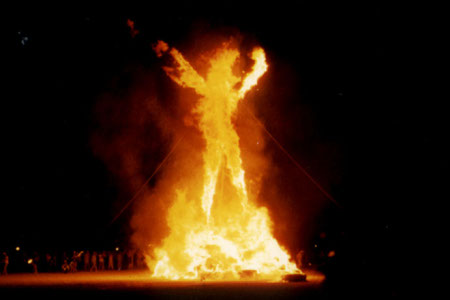We previously reflected upon the intimate, multifaceted relationship between ancient man and fire, and considered how easy it would have been for a man such as Heraclitus to conceive of the idea that fire is the fundamental constituent of all matter.
Heraclitus was, after all, a subject of the Persian Empire, a land of fire worship, and the reputed cradle of alchemy. Alchemy is a practice of transmuting matter that depends greatly upon fire. It seems to be a natural—albeit mystical—offspring of the bronze age.
Perhaps after recognizing the ubiquity of fire, Heraclitus reflected upon the nature of fire, and came to this conclusion:
fire is hunger and satiety.
—Heraclitus
Fire is indeed a hungry phenomenon. It seems to exist exclusively to consume, though the light and heat it has provided us through the millennia make it much more than a consumer. Yet it remains an archetype of consumption. Is not combustion the primal hunger within us? Is it not our deepest physiological craving for the fuels of combustion: oxygen and carbon compounds?
But fire is obviously not equal to hunger, for as consumption, it is also the satisfaction of its hunger.
Seeing everything around us as governed by this paradox, one can easily see the function of fire in the philosophy of Heraclitus. Heraclitus taught that the world is governed by a harmony of opposites. Recognizing that harmony, he saw wisdom in the working of things, but it was a harmony of war, of hunger. Whatever equilibrium he could see was a dynamic, cyclic equilibrium under tension. To Heraclitus, fire must have seemed fundamental both literally and metaphorically.
